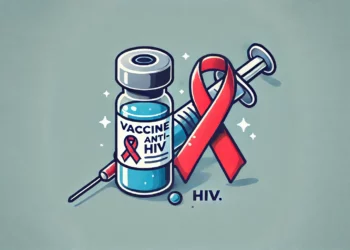In what may be a breakthrough moment in our fight with HIV, a nine-year-old infected with HIV at birth is now disease free.

“Curing HIV” seems like one of those overhyped clickbait titles — but this is not the case here. Today, at the 9th IAS Conference on HIV Science in Paris, researchers have reported an instance where HIV has truly been cured.
The child was diagnosed with the disease at one month of age and started an aggressive treatment at two months of age. The treatment lasted for 40 weeks. When he was nine years old, the child was tested and while HIV was present (in very low numbers), none were capable of reproducing. The child also didn’t exhibit any special genetic markers that might have helped him fend off the infection otherwise. It was the early treatment that did the job.
“Further study is needed to learn how to induce long-term HIV remission in infected babies,” said Anthony S. Fauci, M.D., director of the National Institute of Allergy and Infectious Diseases (NIAID), part of the National Institutes of Health (NIH). “However, this new case strengthens our hope that by treating HIV-infected children for a brief period beginning in infancy, we may be able to spare them the burden of life-long therapy and the health consequences of long-term immune activation typically associated with HIV disease.”
At the beginning of the treatment, the child had very high virus levels, which makes the achievement even more impressive. Aside from a reservoir of virus integrated into a tiny proportion of immune cells, researchers found no evidence of HIV, and even that hidden cache was harmless, unable to reproduce.
This isn’t the first time treatment administered at a very early age has proven successful. The first tantalizing case was the so-called “Mississippi Boy” who began anti-HIV treatment 30 hours after birth. After ceasing treatment, he controlled the virus for 27 months before it reappeared in his blood. Another case was described in 2015, in which the child started anti-HIV therapy at age 3 month and kept the virus under control for 11 years counting.
Still, as Fauci and his colleagues say, this is the first time antiretroviral therapy (ART) was so successful in the long run.
“To our knowledge, this is the first reported case of sustained control of HIV in a child enrolled in a randomized trial of ART interruption following treatment early in infancy,” said Avy Violari, F.C.Paed. Dr. Violari co-led the study of the case reported today as well as the CHER trial with Mark Cotton, M.Med., Ph.D. Dr. Violari is head of pediatric research at the Perinatal HIV Research Unit, part of the University of the Witwatersrand in Johannesburg. Dr. Cotton is head of the division of pediatric infectious diseases and director of the family infectious diseases clinical research unit at Stellenbosch University, South Africa.
An ongoing campaign is now assessing the hypothesis that administering ART in the earliest stages of life could keep the virus under control. By further studying this child, researchers could better understand how his immune system is keeping the virus in check and try to replicate this in further trials. An ongoing trial has already enrolled close to 400 HIV-exposed infants, 42 of whom are HIV infected, in Argentina, Brazil, Haiti, Malawi, South Africa, Uganda, the United States, Zambia, and Zimbabwe. The first of them will stop the treatment later this year, and then we will see if the immune system manages to keep the virus at bay. HIV’s stronghold is starting to shake.
The results were not peer reviewed. Materials provided by NIH/National Institute of Allergy and Infectious Diseases.






